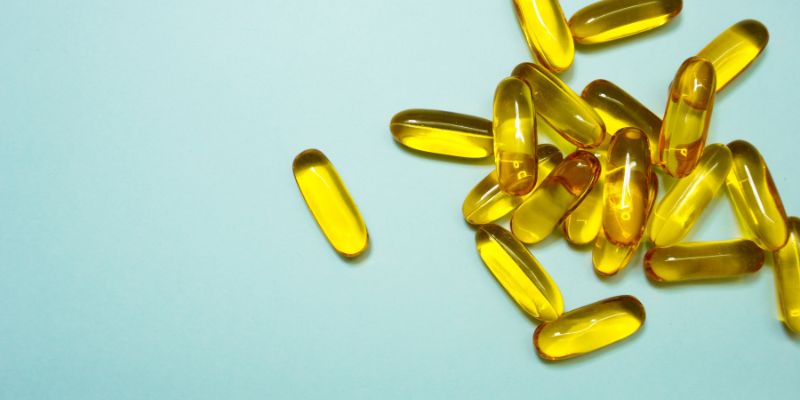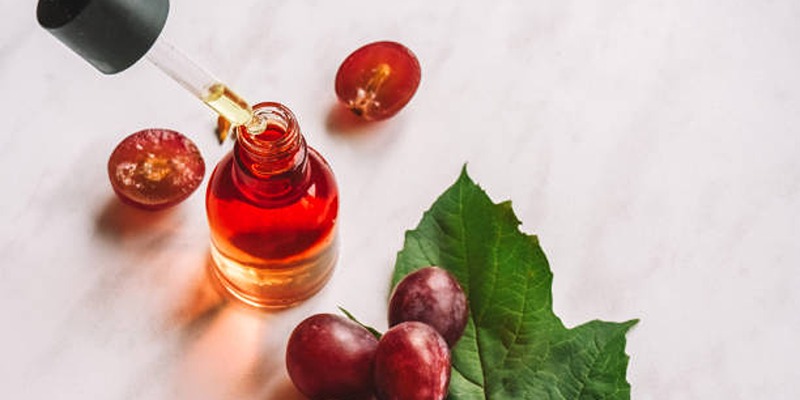Antioxidants are often touted as the microscopic guardians of our health, waging war against the nefarious free radicals that threaten our bodies' delicate balance. These potent compounds, found abundantly in a variety of fruits, vegetables, and whole grains, are critical in preventing oxidative stress, which has been implicated in aging and various diseases. By neutralizing free radicals, antioxidants help protect our cells from damage that can lead to chronic conditions such as heart disease, cancer, and diabetes. But what exactly are these powerful substances, and how do they fit into a balanced diet? Understanding the role of antioxidants is the first step towards harnessing their benefits and optimizing our nutritional intake for long-term wellness.
Definition of antioxidants

Antioxidants are molecules that can stop the damaging effects of free radicals on our cells. Free radicals are unstable atoms or molecules that are missing an electron, making them highly reactive and prone to causing cellular damage. This process is known as oxidative stress, which can lead to a wide range of health problems. Antioxidants help neutralize these free radicals by donating one of their electrons, thus stabilizing them and preventing further damage.
Types of antioxidants
There is a wide range of antioxidants found in nature, each with its unique benefits and properties. Some common types include:
- Vitamins: Vitamins A, C, and E are all powerful antioxidants that play essential roles in maintaining healthy cells.
- Minerals: Selenium, copper, zinc, and manganese are all minerals that act as antioxidants in the body. They are often found in plant-based foods.
- Polyphenols: These plant compounds have potent antioxidant properties and can be found in fruits, vegetables, nuts, and seeds.
- Carotenoids: These pigments give fruits and vegetables their vibrant colors and have strong antioxidant effects. Examples include beta-carotene, lycopene, and lutein.
Sources of antioxidants
Antioxidants are naturally found in a variety of foods, with plant-based sources being the most abundant. Some common food sources of antioxidants include:
- Fruits and vegetables: Berries, citrus fruits, leafy greens, and cruciferous vegetables like broccoli and Brussels sprouts are excellent sources of antioxidants.
- Nuts and seeds: Almonds, walnuts, and sunflower seeds are all rich in antioxidants.
- Whole grains: Whole grains like oats, brown rice, and quinoa contain high levels of antioxidants.
- Herbs and spices: Turmeric, cinnamon, oregano, and ginger all have potent antioxidant properties.
Balancing antioxidants in your diet
While antioxidants are essential for maintaining good health, it's important to note that more is not always better. Too many antioxidants in the body can actually have negative effects and disrupt our body's natural processes. That's why it's crucial to maintain a balance in our diet and not rely on supplements as our main source of antioxidants. Instead, aim for a diverse diet rich in whole, plant-based foods to ensure a healthy intake of various types and amounts of antioxidants. It's also important to note that cooking methods can affect the antioxidant content in foods, so opting for steaming or roasting rather than frying can help preserve these valuable compounds.
Health Benefits of Antioxidants
The potential health benefits of antioxidants are vast, and research is still ongoing to fully understand their role in preventing and treating diseases. However, some of the most studied benefits include:
- Reduced risk of chronic diseases: Oxidative stress has been linked to various chronic diseases. By neutralizing free radicals, antioxidants may help reduce the risk of conditions such as heart disease, cancer, and diabetes.
- Improved skin health: Free radicals can also damage our skin cells, resulting in signs of aging such as wrinkles and age spots. Antioxidants may help protect our skin from this damage, keeping it looking youthful and healthy.
- Protection against cognitive decline: Some studies suggest that antioxidants may play a role in protecting brain cells and reducing the risk of cognitive decline and neurodegenerative diseases like Alzheimer's.
- Boosted immune system: Antioxidants may also support our immune system by protecting immune cells from damage and promoting their proper function.
How to Include More Antioxidants in Your Diet?
The best way to include more antioxidants in your diet is by eating a diverse range of whole, plant-based foods. This includes incorporating plenty of fruits, vegetables, nuts, and seeds into your meals and snacks. Here are some tips to help you add more antioxidants to your diet:
- Eat the rainbow: Different colored fruits and vegetables contain different types of antioxidants. Aim to include a variety of colors in your meals to ensure you're getting a diverse intake of antioxidants.
- Snack on nuts and seeds: Keep a stash of mixed nuts and seeds for a healthy, antioxidant-rich snack option.
- Add herbs and spices: Herbs and spices are not only flavorful but also packed with antioxidants. Sprinkle them on your meals or brew them in teas for an extra boost of antioxidants.
- Choose whole grains: Opt for whole grains over refined grains, as they contain higher levels of antioxidants and other nutrients.
By incorporating more antioxidant-rich foods into your diet, you can reap the potential benefits of these powerful substances and support your overall health and well-being.
Common Misconceptions About Antioxidants

As with any popular topic, there are often misconceptions and misinformation surrounding antioxidants. Here are some common myths about antioxidants:
- Myth: Antioxidants can cure all diseases: While antioxidants have many potential health benefits, they cannot cure all diseases or replace necessary medical treatments.
- Myth: Supplements are better than food sources of antioxidants: Whole, plant-based foods provide a variety of antioxidants along with other essential nutrients, making them the best source of antioxidants. Supplements may not always provide the same benefits and can even be harmful in high doses.
- Myth: More is better: As mentioned before, maintaining a balance of antioxidants in our diet is crucial. Too many antioxidants can have negative effects on our health.
Conclusion
Antioxidants are powerful substances found in various foods that can help protect our bodies from damage caused by free radicals. By incorporating a diverse range of whole, plant-based foods into our diet, we can ensure a healthy intake of antioxidants and potentially reap their numerous health benefits. Remember to aim for balance and avoid relying on supplements as our main source of antioxidants. With a healthy and balanced diet, we can support our overall health and well-being with the help of these powerful compounds. So, it's important to include plenty of antioxidant-rich foods in our meals and snacks for a healthy and vibrant life.







